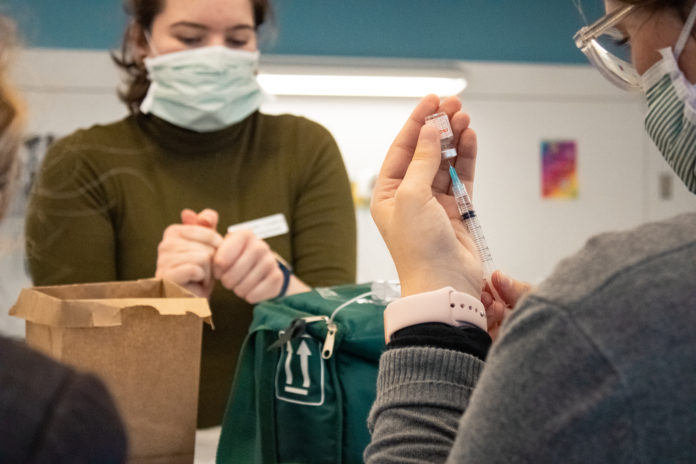

Flu season has arrived and the debate over vaccinations has begun. In the current COVID-19 era, the push for vaccinations is stronger than ever.
Rachel de Molitor, a fourth-year St. Thomas University sociology student, said she gets vaccinated every year.
“You need to take personal precautions to protect those around you. COVID-19 is a great representation of what happens when we don’t take precautions,” said de Molitor.
Flu season begins in October and looms through winter until April, according to Stacy Taylor, a nurse practitioner working at the UNB health centre. In the midst of a pandemic, the health centre is pushing students to get vaccinated.
This year, the flu shot is publicly funded. Taylor said she hopes the initiative will increase vaccinations.
“Public health has made it so cost is not a barrier,” said Taylor. “[Public health] especially wants everyone to get vaccinated.”
In previous years, de Molitor said she has seen people denied vaccinations due to a lack of money. She’s hopeful the public health funding will help achieve widespread vaccinations.
Janice Lawrence, a virology professor at the University of New Brunswick, said influenza mutates every year, which means the effectiveness of the flu shot will vary. Lawrence said it’s vital people understand even a low immunity percentage is better than no immunity at all.
“It’s not a perfect science. They’re using a prediction of how the virus will probably mutate and evolve in the next year,” said Lawrence.
With the ongoing pandemic, de Molitor feels it’s important to protect vulnerable populations as she works at a long term care facility.
“My loved ones are parts of vulnerable populations, pregnant women, young children and people who cannot vaccinate themselves. I get the vaccine because of herd immunity,” she said.
Taylor said vaccination is important in keeping flu patients out of the strained health care system. Lawrence seconds this and said the flu itself may not hospitalize patients but subsequent infections such as pneumonia can create problems.
“We don’t have the resources to care for extra people when we have a pandemic on our hands,” said Lawrence.
Taylor Smith, a fourth-year sociology student said she knows the risks of the flu and COVID-19 but said she feels healthy and is vigilant in observing protocols. Smith said she does not think she will get the vaccine.
“I know everybody says COVID can strike anybody and they say, ‘don’t think just because you’re healthy you’ll get away with it,’ but other than recently, I haven’t been sick in years,” she said.
Smith believes she already got the flu this year, which is why she’s not worried about the vaccine.
Lawrence said that having the flu either before or after COVID puts the body at risk.
“If your body has already been fighting a big fight with either COVID-19 or influenza, you wouldn’t want to then subject it to another virus right afterwards,” said Lawrence.
“These can have very long-lasting impacts on your overall health.”
